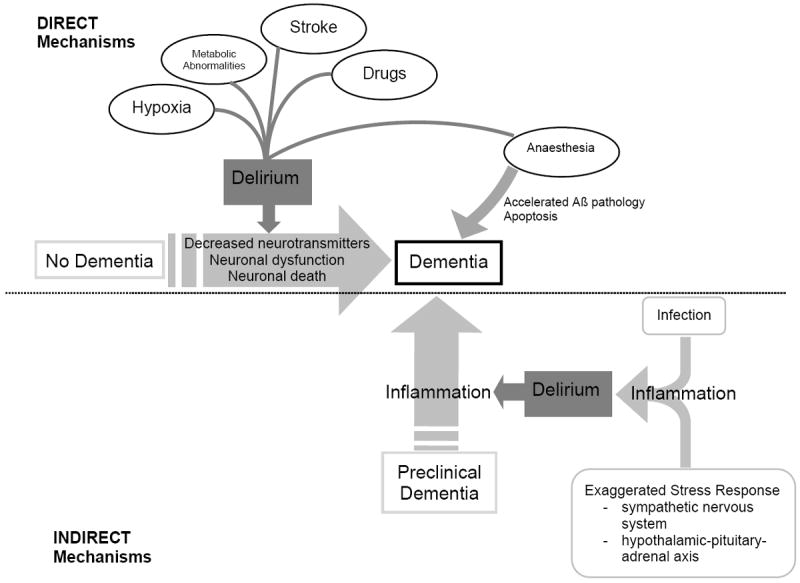Figure 1.

A hypothetical model for the pathophysiologic interrelationship between delirium and dementia. Delirium is a known risk factor for new onset dementia, and this may arise via direct mechanisms such as hypoxia, metabolic abnormalities, stroke, or medications. In turn, delirium is associated with neuronal dysfunction, alterations in neurotransmitters, and neuronal death and this could lead directly to dementia. There is also growing evidence that certain anesthetics associated with postoperative delirium may alter Aβ, which in turn may indicate a role for new onset dementia. Delirium is also likely to be a marker of vulnerability in patients with pre-existing dementia, and might accelerate existing dementia. This may occur indirectly, for example, via inflammation triggered by systemic infection or exaggerated response to a stressor.
Ref.
Maclullich AM, Anand A, Davis DH, Jackson T, Barugh AJ, Hall RJ, Ferguson KJ, Meagher DJ, Cunningham C. New horizons in the pathogenesis, assessment and management of delirium. Age Ageing. 2013 Nov;42(6):667-74.
Fong TG, Tulebaev SR, Inouye SK. Delirium in elderly adults: diagnosis, prevention and treatment. Nat Rev Neurol 2009; 5: 210-220. PMCID: PMC3065676
